Travelling within the Schengen Area with a residence permit or visa
You want to travel within the Schengen Area. Find out which countries belong to the Schengen Area and with which document you are allowed to travel within it. Also find out how long you are allowed to travel within the Schengen Area with that document.

Schengen countries
Documents required to travel within the schengen area, the netherlands is part of the schengen area. the schengen area consists of different european countries. there are no border controls within the schengen area. the schengen area consists of the following countries:.
- Czech Republic
- Denmark (without the Faeroes and Greenland)
- France (without French Guyana, Guadeloupe, Martinique, Réunion)
- Liechtenstein
- Netherlands
- Norway (without Spitsbergen)
- Portugal (including the Azores and Madeira)
- Spain (including the Balearic and Canary Islands)
- Switzerland
Cyprus and Ireland are not Schengen countries.
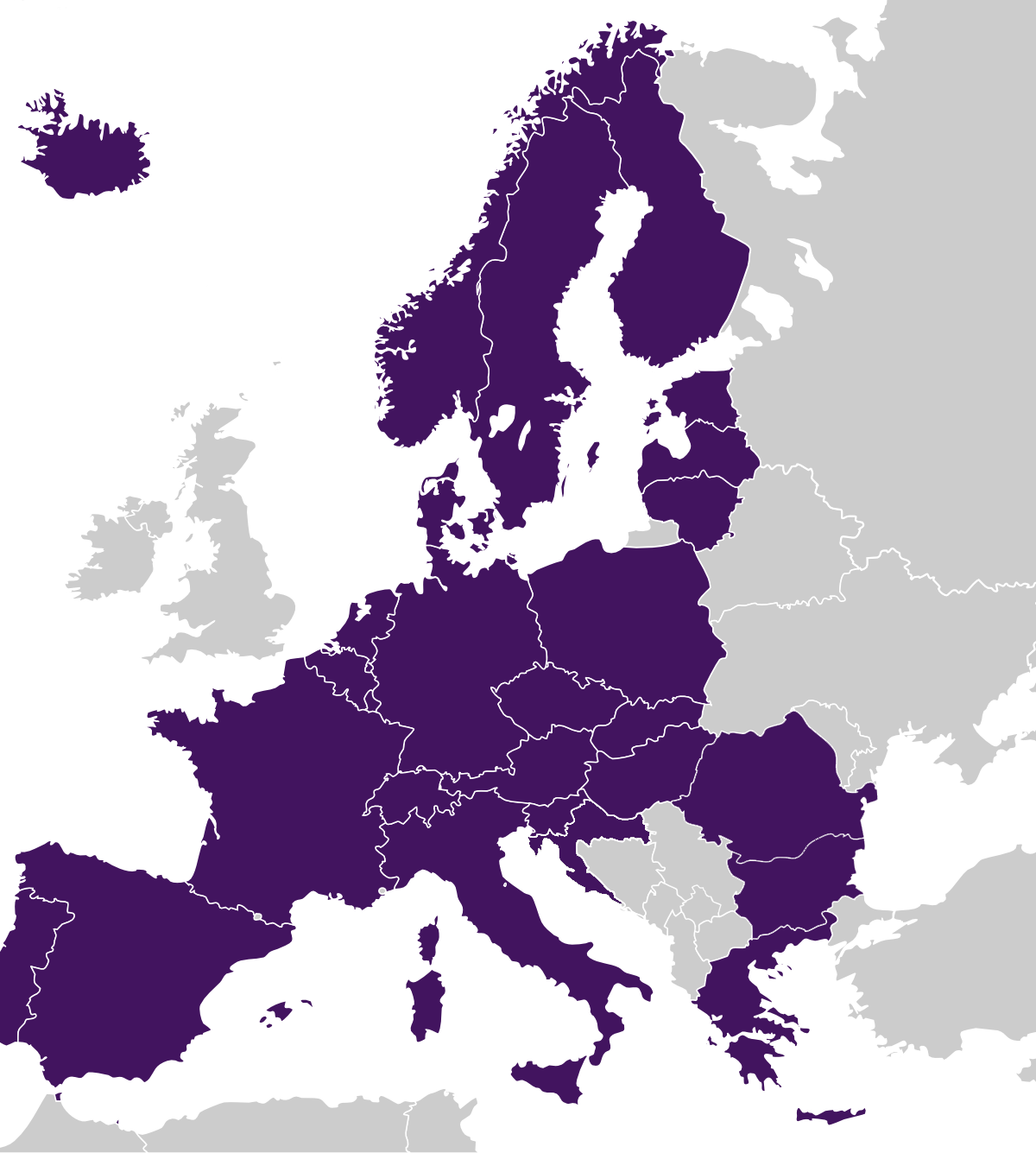
Do you want to travel within the Schengen Area? Then you need specific documents. Find out with which document you are allowed to travel within the Schengen Area and how long you are allowed to travel with that document.
Passport or other travel document always required.
You always need a passport or other travel document for a journey abroad. This is also the case for a journey within the Schengen Area. Your passport or travel document must not have been issued more than 10 years ago. The passport or other travel document must also be valid for at least another 3 months after you leave the Schengen Area.
Travellers with the nationality of a Schengen country
Travellers with the nationality of a Schengen country are free to travel to all countries in the Schengen Area. They do not need any extra document besides their passport or other travel document.
Travellers with residence permits
What if you do not have the nationality of a Schengen country but do have a valid Dutch residence permit? Then you are allowed to be in the Schengen Area for up to 90 days within a 180-day period. Besides your passport or other travel document, take your residence permit with you when you travel.
Travelling in the Netherlands after your residence permit has expired
Is your residence permit expiring and you will not continue to live in the Netherlands? But do you wish to stay in the Netherlands for an additional maximum of 90 days after the end of your permit? Read about a short stay after end of residence permit .
Travellers with a provisional residence permit (mvv)
Do you not have a residence permit, but you do have a valid provisional residence permit (in Dutch: machtiging tot voorlopig verblijf or MVV)? Then you are allowed to enter and exit the Netherlands and other countries in the Schengen Area. The MVV is a sticker in your passport.
Other travellers
You do not have the nationality of a Schengen country. Nor do you have a valid residence permit or valid provisional residence permit (MVV). In that case you sometimes need a visa to travel in the Schengen Area. This can be a single-entry visa or a multiple-entry visa.
No visa needed
Do you not need a visa? Then you are allowed to be in the Schengen Area in the visa-free period for up to 90 days within a 180-day period. In this period you are allowed to enter and exit the Schengen Area several times. You do not need an extra document besides your passport or other travel document.
Do you want to be in another Schengen country for a short stay? Then you do not have to first leave the Schengen Area. Do contact the authorities of the country you want to visit.
Single entry visa
You have a valid single-entry Schengen visa. You may enter the Schengen Area once with this visa. You may be in the Schengen Area for up to 90 days within a 180-day period. When you arrive in the Schengen Area, you must show that the Netherlands is your destination.
Multiple entry visa
You have a valid multiple-entry Schengen visa. You may enter and exit the Schengen Area several times with this visa. You may be in the Schengen Area for up to 90 days within a 180-day period. The first time you enter the Schengen Area you must show that the Netherlands is your destination.
- Travelling with a residence permit and return visa
- Apply for a Schengen visa
- +359 888 350 643
- clients(at)lawyers-bulgaria.com
FORM A COMPANY NOW
REQUEST CALL BACK
FREE CASE EVALUATION
Residence Permit in Bulgaria - Guide for 2024
- Residence Permit in Bulgaria

- extended residence permits: these have a maximum validity period of one year; may be used by investors and other interested parties;
- long-term EU residence permits: these are issued for an initial period of five years and can then be renewed.
- permanent residence permits: these are granted after a certain time spent lawfully in the country with a valid permit.
- residence certificates: available for European citizens who stay for more than three months, on a long-term basis for maximum of five years or permanent ones.
What are the types of Bulgaria residence permits ?

- to foreign nationals of Bulgarian descent;
- to foreigners who have been married for more than five years to a foreigner who has been living on the country uninterruptedly for five years;
- minors of foreign nationals with permanent residence in Bulgaria, who are unmarried;
- family members of a Bulgarian citizen, when they have been living in the country uninterruptedly for five years.
- an investment of one million Bulgarian Leva or more for the purpose of acquiring shares in listed Bulgarian companies or for the acquisition of other securities or rights;
- an investment of more than six million Bulgarian Leva in the capital of a Bulgarian company that is not listed on the stock exchange.
Immigration to Bulgaria as an EU/EEA citizen
Non-eu citizens relocating to bulgaria.
- they can obtain ID cards for foreign citizens based on which they will have various facilities;
- they can renew their stay here for up to 5 years when they will be allowed to apply for permanent residency, if they want;
- they enjoy the benefits of traveling to Schengen Area states through a simplified procedure;
- if they live in Bulgaria for 183 days every year in a period of 60 months, they become eligible Bulgarian citizenship;
- they can also sponsor family members to join them in Bulgaria.
The status of British citizens in Bulgaria after Brexit
Immigration by investment in bulgaria, what are the documents required for obtaining a bulgarian residence permit in 2024.
- a valid passport,
- proof of accommodation in Bulgaria ,
- proof of self-sufficiency,
- an insurance policy,
- details about the applicant’s marital status and members of the family,
- they are self-employed in Bulgaria or employed with a locally registered company;
- they have sufficient financial means to cover medical insurance and other expenses for themselves and their family members, as applicable, without being a burden to the Bulgarian state.
- they are admitted to a college or university in Bulgaria or follow professional training, have medical insurance and sufficient financial means so that they are not a burden to the social security system.
Types of visas in Bulgaria in 2024
- the A visa, which is for airport transit,
- the C visa for short stays,
- the D visa for long stays.
Requirements when applying for a Bulgarian visa in 2024
- a photocopy of the passport’s first page,
- a copy of the last Bulgarian or Schengen visa , if applicable,
- a passport sized colored photo,
- a medical insurance,
- proof of transportation and accommodation,
- proof of self-sufficiency.
Non-EU immigration statistics in Bulgaria
- 19.7% were labor migrants;
- 27.5% were family members (including accompanying relatives);
- 9.9% were migrants seeking education;
- 42.9% were other migrants.
Our Articles
Company formation in bulgaria +.
- Open a Company in Bulgaria
- Company Dissolution and Liquidation in Bulgaria
- Bulgarian Holding Company
- Company Registration in Bulgaria
- EORI Registration in Bulgaria
- Importing and Exporting in Bulgaria
- The Bulgarian Trade Register
- Virtual Office in Bulgaria
- Special Permits and Licenses for Bulgarian Companies
- Purchasing a Bulgarian Company
- Why start a business in Bulgaria
- Directors of a Bulgarian company
- Obtain Information about Bulgarian Companies
- Verification of a Bulgarian Company
- Subsidiary vs. Branch in Bulgaria
- Selling Shares in a Bulgarian Company
- Buying Shares in a Bulgarian Company
- Types of Companies in Bulgaria
- Open a Company in the Energy Sector in Bulgaria
- Set Up an FMCG Company in Bulgaria
- Set Up a Company in the Insurance Sector in Bulgaria
- Open a Company in the Healthcare Field in Bulgaria
- Set Up a Company in Agriculture in Bulgaria
- Open a Company in the Construction Field in Bulgaria
- Establish a Company in IT Sector in Bulgaria
- Open a Company in the Technology Field in Bulgaria
- Relocate to Bulgaria
- Restructuring a Company in Bulgaria
- Set Up a Hotel/Hostel in Bulgaria
- Open a Financial Company in Bulgaria
- Open a Merchant Account in Bulgaria
- Set Up a Foundation in Bulgaria
- Set Up a Trust in Bulgaria
- Open a Franchise Business in Bulgaria
- Open an Amazon Store in Bulgaria
- Set Up a Fund in Bulgaria
- Set Up a Shop in Bulgaria
- Open a Cryptocurrency Company in Bulgaria
- Set Up a Fintech Company in Bulgaria
- Commercial Law in Bulgaria
- Employment Law in Bulgaria
- Civil Law and Lawyers in Bulgaria
- Road Transportation in Bulgaria
- Dismissal of Employees in Bulgaria
- Labor Agreement in Bulgaria
- Recognition of foreign judgments in Bulgaria
- Bulgarian Legislation for Foreign Investments
- Family Law in Bulgaria
- Maritime Law in Bulgaria
- Inheritance in Bulgaria
- Corporate Law in Bulgaria
- Legislation Related to Share Transfers in Bulgaria
- Bankruptcy Law in Bulgaria
- Insolvency Law in Bulgaria
- Competition Law in Bulgaria
- GDPR Legislation in Bulgaria
- Bulgaria Citizenship by Investment
- Employee/Personnel Relocation to Bulgaria
Legal Services +
- Litigation in Bulgaria
- Debt Collection in Bulgaria
- Purchasing a Property in Bulgaria
- A Guide to Bulgarian Courts
- Divorce Procedure in Bulgaria
- Intellectual Property Lawyers in Bulgaria
- Litigation Lawyers in Bulgaria
- Real Estate Due Diligence in Bulgaria
- Bulgarian Property Register
- Register a Trademark in Bulgaria
- Arbitration Court in Bulgaria
- Marriage in Bulgaria
- How to divorce in Bulgaria
- Buying a property in Burgas
- Buying a property in Sofia
- Hiring Employees in Bulgaria
- Listing on the Stock Exchange in Bulgaria
- Oppose a Trademark in Bulgaria
- Mergers and Acquisitions in Bulgaria
- Business Consulting in Bulgaria
- Obtaining Visa for Bulgaria
- Obtaining Work Permit in Bulgaria
- Selling a property in Bulgaria
- Immigrate to Bulgaria from US
- Immigrate to Bulgaria from UK
- Immigrate to Bulgaria from Canada
- Immigrate to Bulgaria from South Africa
- Obtain Golden Visa in Bulgaria
- Citizenship in Bulgaria
- Immigrate to Bulgaria
- Residence Permit by Marriage in Bulgaria
- Residency by Investment in Bulgaria
- Immigration Lawyers in Bulgaria
- Inheritance Lawyers in Bulgaria
- Buy Land in Bulgaria
- Digital Nomad Visa in Bulgaria
- Immigrate to Bulgaria from Russia
- Immigrate to Bulgaria from Ukraine
- Employment Lawyers in Bulgaria
Taxes in Bulgaria +
- Double Taxation Treaties in Bulgaria
- Taxation in Bulgaria
- VAT Registration in Bulgaria
- Corporate Tax in Bulgaria
- Dividend Tax in Bulgaria
- Tax Minimization in Bulgaria
- Bulgaria-USA Double Taxation Avoidance
- Bulgaria-UK Double Taxation Treaty
- Austria-Bulgaria Double Tax Treaty
- Canada-Bulgaria Double Tax Treaty
- Bulgaria-China Double Tax Treaty
Testimonials

Home » Articles » Residence permit for EU citizens
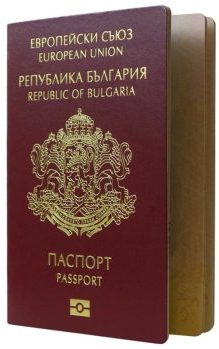
Residence permit for EU citizens
Public body: Ministry of Interior - Migration
Website: https://www.mvr.bg/migration/en/
Non-EU citizens’ visa application
Non-EU citizens looking to settle in Bulgaria need to apply for a Visa as a first step. Type D visa has a six-month validity and a right to stay of up to 180 days. Foreigners complete an application form at a Bulgarian diplomatic or consular mission at their permanent place of residence. A copy of the travel document and passport-size photograph would also be required, in addition to the visa application form. The application process can be initiated no earlier than 3 months from the date of travel and the processing time could take up to 35 working days.
There are some exceptions to the above rule. There is a visa-free regime for holders of multiple Schengen visas for a stay of up to 90 days. Similarly, holders of visas and residence permits issued by Romania, Cyprus, and Croatia can enter Bulgaria visa-free and stay up to 90 days.
The Ministry of Exterior Works has provided a list of countries whose citizens can stay in Bulgaria for up to 90 days without the need for a visa – see here .
Residence permit application for EU citizens
The european health insurance card (ehic or ghic) or medical insurance.
This card is issued by your national health provider and gives you access to medically necessary, state-provided healthcare in any of the EU counties. Bulgarian authorities may request to see your EHIC or alternatively, you would need to purchase medical insurance for foreigners in Bulgaria. The insurance premium is circa 175 BGN. For example, look up Bulstrad.bg.
Bulgarian bank account statement as proof of sufficient funds
Your account balance needs to show at least 12 months’ worth of Bulgarian minimal wage (circa 7,800 BGN). In some cases, it might be sufficient to show proof of a Bulgarian bank card issued in your name.
Proof of address
Homeowners can show the notary deeds of their property , while people renting in Bulgaria need to bring a copy of the tenancy agreement. Your landlord’s consent is key for your application. The landlord declaration needs to be signed and stamped in front of a notary and submitted together with a copy of your rental agreement.
Proof of employment
Bring a copy of your employment contract. Self-employed can show a patent for their respective business activity.
Evidence the applicant is a family member
One can use a birth certificate or a marriage certificate.
Fees for Bulgarian identity documents
Certificate for an EU citizen 7 BGN
Residence permit on a card 18 BGN (standard application takes 30 days)
Fast-tracked application 36 BGN (takes 3 days)
Migration offices in cities across Bulgaria
BURGAS Address: 8000 Burgas, 63 Perushtitsa Str., Lazur complex, tel .: 056/856 809
VARNA Address: 9000 Varna, 1 San Stefano Str., tel: 052/652 349
VELIKO TARNOVO Address: 5000 Veliko Tarnovo, 4 Belyakovsko shose Str., tel .: 062/662084
VRATSA Address: 3000 Vratsa, 17A Dimitraki Hadjitoshev Str., tel .: 092/692 341
GABROVO Address: 5300 Gabrovo, 50 Orlovska Str., tel. 066/800 860
PAZARDZHIK Address: 4400 Pazardzhik, 2 Saedinenie Square, tel .: 034/434 366
PLOVDIV Address: 4000 Plovdiv, 70 Volga Str., tel: 032/932 890
RUSE Address: 7000 Ruse, Bul. “Gen. Skobelev ”№ 49, tel .: 082/882 236
CITY OF SOFIA Address: Sofia, 5 Antim I Str., tel.02 / 982 3764
Declaration from the landload as per article 20a / Application for long-term residence
This website uses cookies. By continuing to use this site, you accept our use of cookies. Learn more
- EXPLORE BULGARIA
- Free expenses calculator
- Bank accounts
- TV and Internet
- Mobile phone plans
- Local taxes
- Deals and discounts
- How to guides
- Electricity
- Internet & TV
- Accounting in Bulgaria
- Beautiful Bulgaria
- Bulgaria from A to Z
What is an EU Residence Permit?
An EU residence permit is an official document issued by a member state of the European Union that allows a non-EU national to live and work in any EU country for a specified period of time. The permit is also sometimes referred to as a “residence card” or “EEA residence permit”.
EU residence permits grant their holders the right to travel freely within the EU and also enjoy certain advantages in terms of healthcare, employment opportunities, and access to social security. The permit is usually valid for five years and comes with a few rights and privileges.
Who Is Eligible for an EU Residence Permit?
Any citizen of an EU country is automatically eligible for an EU residence permit. This includes citizens of countries that are not yet members of the EU. If you are not a citizen of an EU country, you may still be eligible for an EU residence permit if you have a valid passport and meet one of the following criteria:
- You are a family member of an EU citizen (spouse, child, parent, etc.)
- You have a valid work permit for an EU country
- You are a student enrolled at an accredited university in an EU country
- You have been granted asylum in an EU country
- You acquired a Golden Visa from an EU country
Application Process for an EU Residence Permit
To apply for an EU residence permit, you will need to submit an application form along with your passport and proof that you have been living in the EU for at least five years. The application process can take up to three months, depending on your country of residence. In some cases, you may also need to provide additional documents such as a birth certificate or marriage license.
Here’s a brief overview of the application process:
• Complete the residence permit application form and attach your passport and other required documents.
• Submit the application to the competent immigration authority in your EU country of residence.
• Wait for the decision from the immigration authority on whether you have been granted an EU residence permit.
Once you have received a positive decision, you receive a physical residence permit card that must be renewed every five years.
EU Residence Permit Requirements
To be eligible for an EU residence permit, you must:
- have legally lived in an EU country for at least five years
- have a valid passport or ID card
- be employed, self-employed, or have enough financial resources to support yourself
- have health insurance
- have no criminal record
If you are not a citizen of an EU country, you may still be eligible for a residence permit if you have a valid visa or another type of permit from an EU country. You will need to check with the embassy or consulate of the country where you want to reside to find out what specific requirements apply to you.
Residence Permit Validity
An EU residence permit is usually valid for five years, but this can vary depending on your country of origin and your personal circumstances. For example, if you are from a country that is considered high risk for immigration, your residence permit may only be valid for one year. You will need to renew your permit before it expires if you want to continue living in the EU.
Once you have held an EU residence permit for five years, you may be eligible to apply for permanent residency. This allows you to live and work in any EU country without having to renew your permit.
Who is considered an EU resident?
An EU resident is defined as a person who resides in the European Union for at least six months of the year. This includes citizens of EU countries, as well as those who have obtained a residence permit or similar document from an EU country.
What is the difference between an EU citizen and an EU resident?
An EU resident is someone who is currently living in the European Union and has obtained a residence permit from one of its member states. An EU citizen, on the other hand, is someone who holds a valid passport or ID card from an EU country and is automatically eligible for EU rights and privileges. This includes the right to travel, work, and study in any of the other EU countries.
What is the Difference Between a Visa and a Residence Permit?
Although both a requirement for entry and residence in the EU, a visa is a temporary document that allows you to stay in an EU country for up to 90 days. A residence permit, on the other hand, is an official document granting you longer-term residency rights in the EU. To obtain a residence permit, you must meet certain requirements such as having lived legally in an EU country for at least five years and having a valid passport or ID card.
How Do You Become a Resident of the EU?
To become a resident of the European Union, you must meet certain requirements and follow the application process for an EU residence permit. This includes submitting an application form with your passport and proof of residence, providing additional documents such as a birth certificate or marriage license, and following the guidelines laid out by your country of residence.
Once approved, you will receive an official document called a Residence Card which serves as your proof of residency in the EU. Once you have lived in an EU country for five years, you may be eligible to apply for citizenship. This allows you to live and work in any EU country without having to renew your permit.
What are the Benefits of Having an EU Resident Permit
Having an EU residence permit will provide you with certain benefits not available to those with only tourist or visitor visas. Here are some benefits of having an EU residence permit:
- Access to educational and vocational training
- Access to employment
- Access to core social protection and assistance
- Freedom of movement within the European Union
- Access to goods and services
Can I work in the EU with a residence permit?
Yes, you can work in the EU with a residence permit. In fact, one of the main benefits of EU residency is the right to live and work in any EU country. If you have a valid residence permit, you can apply for jobs in any EU country and travel freely within the Schengen Area.
You may need to obtain a work permit before beginning your job, depending on your nationality and the country where you will be working.
What is the Difference Between an EU Blue Card and a Residence Permit?
If you’re planning to move to Europe for work, you may be wondering about the difference between an EU blue card and a residence permit. While both document types allow foreign nationals to reside and work in European Union (EU) member states, there are some key distinctions between them.
An EU blue card is specifically designed for highly-skilled workers from outside of the European Economic Area (EEA). To qualify for an EU blue card, you must have a valid job offer or contract from an employer in an EU country with a salary that meets certain thresholds. Once you have your blue card, you can live and work in any other EU country for up to three months without applying for a new permit.
In contrast, a residence permit is a catch-all term that covers any type of permission to live in an EU country for a longer period of time. This includes permits for work, study, family reunification, and other purposes. Residence permits can be issued for varying lengths of time, from just a few months up to several years.
Where Can I travel with an EU Residence Permit?
With an EU residence permit, you can travel freely within the Schengen Area – Austria, Belgium, Bulgaria, Croatia, Republic of Cyprus, Czech Republic, Denmark, Estonia, Finland, France, Germany, Greece, Hungary, Ireland, Italy, Latvia, Lithuania, Luxembourg, Malta, Netherlands, Poland, Portugal, Romania, Slovakia, Slovenia, Spain, and Sweden. This also includes a few non-EU countries, such as Iceland, Lichtenstein, Norway, and Switzerland.
When traveling within the Schengen Area, you will not need to show your passport or residence permit at border control points. However, you may be asked to present other documents, such as your travel insurance policy or proof of sufficient funds for your stay. You should also be prepared to show your return ticket or onward journey itinerary if requested.
In conclusion, an EU residence permit is a document that allows you to live and work in any EU country. If you’re thinking about moving to Europe, it’s important to understand the process and requirements for obtaining an EU residence permit. This will ensure that you can make the most of your stay and take advantage of all the benefits that come with it. Good luck!

Schengen Visa Goes Digital: What Travelers Need to Know
Exploring the impact of digital applications on simplifying the Schengen visa process, this article delves into the potential benefits and challenges of going digital for travelers.

Thailand, Cambodia, and Vietnam Explores Schengen Visa Style System for Seamless Southeast Asian Travel
Thailand, Cambodia, and Vietnam are considering a unified Schengen-style visa system to boost travel and tourism across Southeast Asia.

Romania and Bulgaria Launch First Flight Following Partial Schengen Zone Admission
The historic inaugural flight between Romania and Bulgaria after their partial Schengen admission, marking a significant milestone in European integration and boosting travel and tourism in both nations.
Privacy Overview
- fr français
- pt português
Bulgaria - Family member
Are you a non-EU citizen living in Bulgaria and would you like to bring your non-EU family members to live with you there? You can find information below on the conditions, procedures and rights your family members can enjoy during their stay.
If you hold a residence permit that is valid for at least one year, you are entitled to apply for family reunification.
You can reunite with the following family members:
- your spouse;
- your minor children and those of your spouse.
Your family members must obtain a visa and after that a residence permit.
Where and how to apply
Access to employment
- Ministry of Interior
- Migration Directorate
- Ministry of Labour and Social Policy
- Ministry of Foreign Affairs
- Employment Agency
Share this page
Bulgarian citizenship by origin
Eu blue card, scam alert, bulgaria in schengen, golden visa bulgaria, bulgaria in schengen – what it means to you, bulgaria and romania are officially part of the schengen area.
from March 31 st , 2024

After the long awaited Schengen membership of Bulgaria, now (from 31.03.2024), Bulgaria becomes officially a Schengen member state . We will explain here what the consequences of the Bulgaria’s accession to Schengen will be. We will mainly focus on what the Bulgarian Schengen membership will mean to the foreigners, who are holding Bulgarian visas or residence permits. But first, let’s start briefly with what will change for the Bulgarian citizens.
Schengen and Bulgarian citizens
Basically, for Bulgarian citizens, Schengen is nothing, but a few minutes (or even seconds) less waiting time at the border. Bulgarian citizens are enjoying ultimate freedom of movement within the EU. So Schengen is nothing that relates to their travel or living rights. At all EU borders, Bulgarians are passing freely and the Bulgarian Schengen membership is irrelevant to the Bulgarians’ rights.
The biggest hurdle to Bulgarians is the Bulgarian-Greek border, where waiting times can be annoying during the holiday season. Now that Bulgaria is in Schengen by air and sea (from 31.03.2024), this will not change immediately. However, it has been already decided that the land-borders checks will be lifted in due course as well.
The Council shall endeavour to take a decision lifting checks on persons at internal land borders. COUNCIL DECISION (EU) 2024/210 – 30 December 2023
All in all, Schengen is irrelevant to the unrestricted rights of free movement of the Bulgarians . As citizens of the European Union, Bulgarians enjoy the same rights as all other EU citizens – period.
Schengen and the foreigners with Bulgarian visas and residence permits
The Bulgarian accession to the Schengen area is big news for the foreigners, living in or visiting the country. For them, the Bulgarian visa or residence permit becomes a real freedom tool! It is now a quite different document from what it was in the Bulgarian pre-Schengen era. So let’s see what is changing now that Bulgaria becomes a member of the Schengen area.
Frequently asked questions (FAQ) about Bulgaria and Schengen
Below are the most important questions that we were asked by our clients in the first days after it was decided that Bulgaria is joining Schengen. Our answers are based on the decision of the EU council and the relevant legal acts. It is possible that some of the answers will be adjusted at a later time. This will be based on the exact implementation of Bulgaria and Romania’s Schengen accession.

The Decision of the Council of the European Union
First things first. We will start with the most important part of the official decision of the EU Council. It is important to mention that the decision is already published in the Official Journal of the European Union:
So let’s see what will all that mean for the foreigners who hold Bulgarian visas and Bulgarian residence permits.

Bulgarian Schengen short term visas
Starting from 01.04.2024, Bulgaria will be issuing Schengen visas. The Bulgarian issued Schengen visa will be good for travel to Bulgaria, as well as to all other Schengen member states. This is great news for many foreigners of course. As from April 1st, they will be able to use their Bulgarian short-term visas to access all Schengen countries.
The validity of the Schengen visas
The Schengen visa is valid for a short term stay of up-to 90 days in any 180 day period. The exact length of the validity of the visa is explicitly indicated on the visa sticker.
Schengen visa doesn’t guarantee entry
Prior to Bulgaria’s Schengen membership, Bulgarian national visas were good for travel to Romania, Cyprus and Croatia. Now, anyone with Bulgarian Schengen visa will be able to travel virtually everywhere in Europe. It is essential to comprehend though, that the Schengen visa doesn’t guarantee entry. The visitor may be required to provide additional documentation at the entry point. Such can be for example proof of sufficient means, documents showing the purpose of the visit, etc. This obviously applies to all Schengen visas, irrelevant of the issuing country.

Travelling by land, air and sea within the Schengen area
Even though the land border checks between Bulgaria and the other Schengen countries will still remain for some time, this doesn’t affect the right of the Bulgarian (Schengen) visa holders to visit other Schengen countries. And this right will apply to all type of transportation (border crossing) – by air, sea and land. In other words, Bulgarian Schengen visas will be valid for travel to all Schengen countries. And it is irrelevant of whether the travel will be bi airplane, car, bus, train, boat, etc.
Bulgarian national visas issued prior to 31.03.2024 will automatically become equivalent to Schengen visas on 01.04.2024. This is if these are short-term visas with maximum allowed stay of 90 days during a 180-days period.

Bulgarian residence permits are good for travel in the Schengen zone
Probably the best news for the foreigners, residing in Bulgaria is that their residence permits will be good for visa-free travel to all Schengen member states.
With a Bulgarian residence permit one can now (from 01.04.2024) visit other Schengen countries for a period of 90 days in every 180-days period.
Staying long-term in another Schengen country with Bulgarian long-term residence permit
Visiting other Schengen member states with your Bulgarian residence permit is allowed, for as long as your stay is compliant with a “short-term visit”. This is to say – maximum 90 days in each 180-days period. As there are no border checks between Bulgaria and the other Schengen countries (currently only by air and sea, but soon by land too), it is unclear how the authorities will be able to asses the time spent in another Schengen country. We urge all our readers however to observe the legal rules and not to overstay the 90-days rule.
Some additional thoughts about the impact of the Bulgarian Schengen membership

Bulgarian Golden Visa
Investors from all over the world have been strongly interested to obtain Bulgarian citizenship and passport. Bulgarian residence permit has never been as desired as the residence permits of Portugal or Greece for example. This was due to the fact that with Bulgarian residence card, the foreigner could not travel visa-free to the Schengen countries. At the same time, Portugal and Greece were offering this opportunity. But now everything changes. Bulgarian residence permit becomes a real Golden Visa and the interest from the international community is already skyrocketing.
Getting Bulgarian residence permit will become more difficult
At the same time however, we expect that the authorities will tighten the regime of granting residence permits to foreigners. Bulgaria has now engaged to safeguard the Schengen area even harder than before. And with the sharply increased interest for the (now much more desirable) Bulgarian residence permit, immigration authorities will be more vigilant than ever.
An interesting hypothesis for the illegal foreigners in Bulgaria
We will have a theoretical problem when an illegal foreigner in Bulgaria (no visa, no residence permit) decides to visit another Schengen member state by air. As there are no border checks at the airport, it seems that the foreigner will be able to freely leave Bulgaria and enter the other Schengen country. But the reason for not lifting (yet) the land border checks between Bulgaria and the Schengen countries is exactly, because of the fear of illegal immigrants from Bulgaria. So how will this illegal foreigner be stopped? We believe this will be handled by the airlines, who will receive clear instructions not to allow illegal foreigners on board. Such rules are already in place and the airlines are financially responsible for transporting illegal immigrants. We believe that these rules will be applied even more strictly at the Bulgarian airports during check-in.
Bad news for some British citizens
British citizens are big fans of Bulgaria, often chasing the cheap booze or the rustic life in the countryside. After Brexit however, many Brits found themselves in a difficult situation as to how to legalize their stay in Bulgaria. It was then when many found the “backdoor” of staying 90 days visa-free in Bulgaria, then leaving for Greece for another 90 days and then returning back. This arrangement will be not possible anymore, as both Greece and Bulgaria will be Schengen member states.
We believe we have covered all aspects and have answered the most important questions about the Bulgarian Schengen membership. If you have any remarks or questions, please don’t hesitate to contact us .
Legal Immigration Services | Visa and residence permits | Bulgarian Citizenship
Posolstvo.eu - member of VD&A

Andrew Henderson
Founder of Nomad Capitalist and the world’s most sought-after expert on global citizenship.
ABOUT THE COMPANY
What we’re all about
MEET OUR TEAM
Meet our 80+ global team
We’re here to serve you
Your questions answered
TESTIMONIALS
Read our testimonials
Get free email updates

ACTION PLAN
Our flagship service for entrepreneurs and investors
ACTION PLAN ELITE
Create your Action Plan directly with the Mr. Henderson himself
CITIZENSHIP BY DESCENT
Claim a second passport based on familial connections
ALL SERVICES
Click here to see all our products and services
GOING OFFSHORE
Offshore Banking
Offshore Company
Offshore Trust
Offshore Gold Storage
Offshore For Americans
SECOND CITIZENSHIP
Second Passport
Citizenship By Investment
Citizenship By Ancestry
Dual Citizenship Benefits
EU Citizenship
SECOND RESIDENCE
Second Residence
Golden Visas
Residence By Investment
EU Residence
Tax Residence
FINANCE & INVESTMENTS
Tax Reduction
International Investment
Cryptocurrency
Foreign Real Estate
Asset Protection
NOMAD LIFESTYLE
Flag Theory
Lifestyle Design
Plan B Strategy
Hiring Overseas
Living In Eastern Europe
PASSPORT INDEX
Discover the world’s best passports to have in an ever-changing world
CITIZENSHIP MAP
Explore the citizenship options using our interactive citizenship map
Explore the tax details for countries using our interactive tax map
ALL RESEARCH
Click here to see all of our research and interactive tools
THE WORLD’S #1 OFFSHORE EVENT
Kuala lumpur | september 25-28, 2024.
Learn from our R&D playbook and meet like-minded people at our annual event.
NOMAD CAPITALIST THE BOOK
Andrew Henderson wrote the #1 best-selling book that redefines life as a diversified, global citizen in the 21st century… and how you can join the movement.
How to Obtain Bulgarian Residence: The Ultimate Guide 2024

This article discusses how to obtain a Bulgarian residence permit, what the requirements are and the benefits you receive from meeting them.
A second residence can change your life and a Bulgarian residence permit gives you better value for money and access to Europe.
A second residency opens up new investment markets, can help you legally reduce your tax bill, and, as a step to citizenship, can help enhance your passport portfolio . We show HNWIs the way to obtaining permanent residence and so much more as part of a holistic Action Plan .
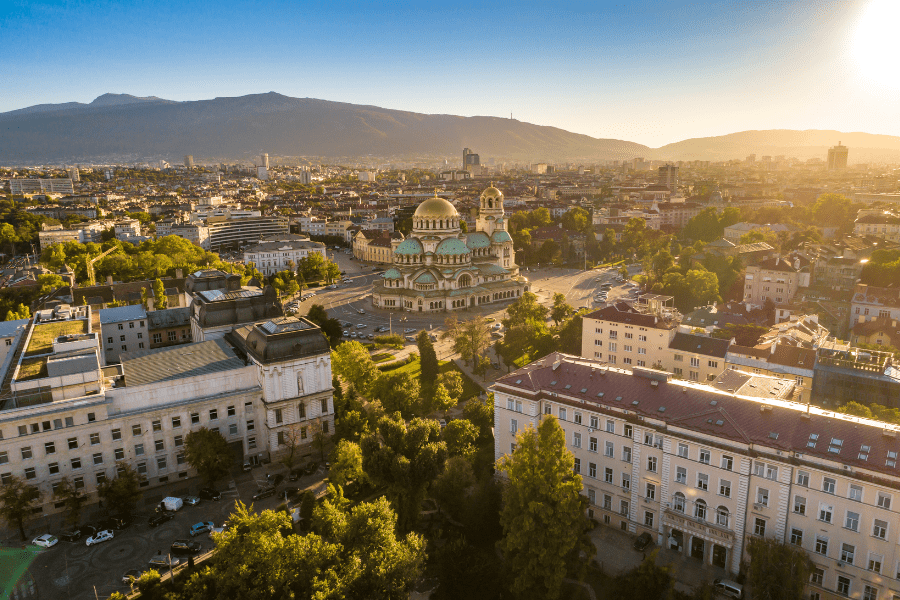
Bulgaria Country Overview
One of Europe’s oldest states, Bulgaria, dates back to the 7th century. Officially known as the Republic of Bulgaria, it shares borders with Romania, Serbia, North Macedonia, Greece, and Turkey.
This eastern Balkans country has a population of 6.687 million. Sofia, the capital, sits in the west of Bulgaria. Bulgarian is the mother tongue, and after Russian, English is Bulgaria’s second most common foreign language.
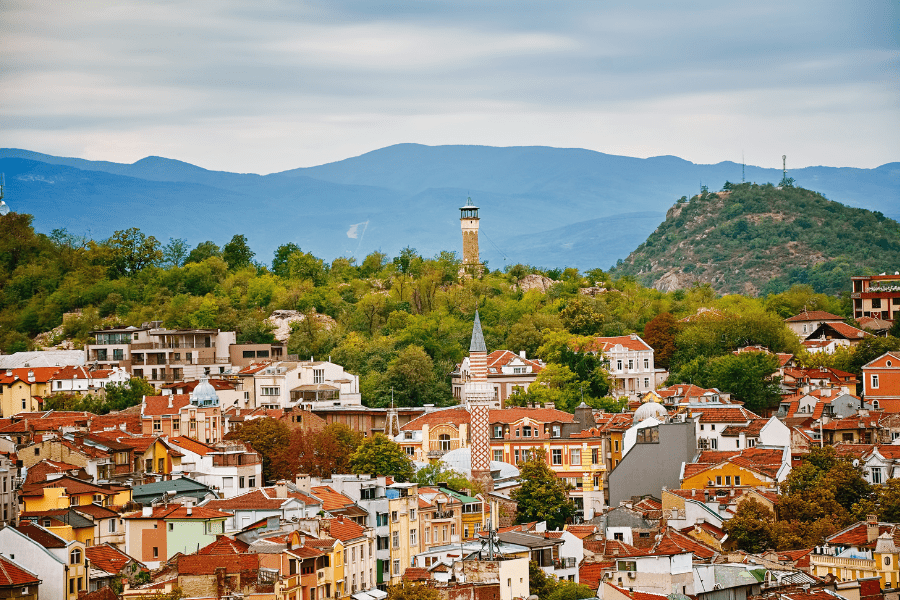
Bulgaria – Climate
You can enjoy both the pristine beaches and the ski slopes in Bulgaria . The country has two climatic regions: a more continental climate in the north and a Mediterranean climate in the south. Average temperatures range from 73°F (23°C) in the summer and 37°F( 3°C) in the winter.
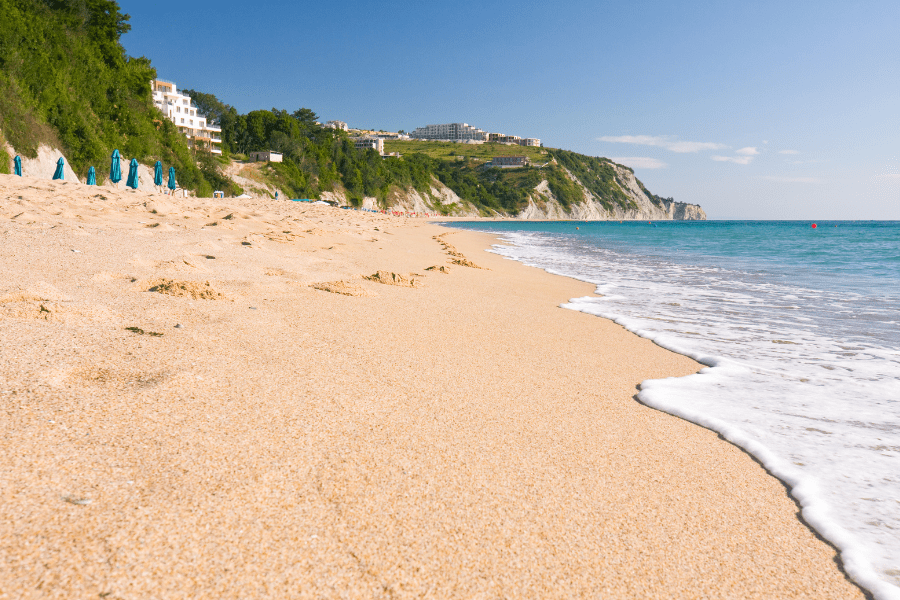
Bulgarian Residency Benefits
Bulgaria is an affordable country with a skilled labor force, making it appealing to both investors and entrepreneurs. Most appealing of all, the country has a flat income and corporate income tax rate of just 10%
The country joined the EU in 2007. So by obtaining residence in Bulgaria you get the chance to become a European citizen later on. We will discuss permanent residence and citizenship later on in this article.
EMBED: https://youtu.be/pMgX-PngytI
Looking to reduce your taxes and gain residency or citizenship in Europe? Become a client , and we will help you find the perfect European base for your needs.
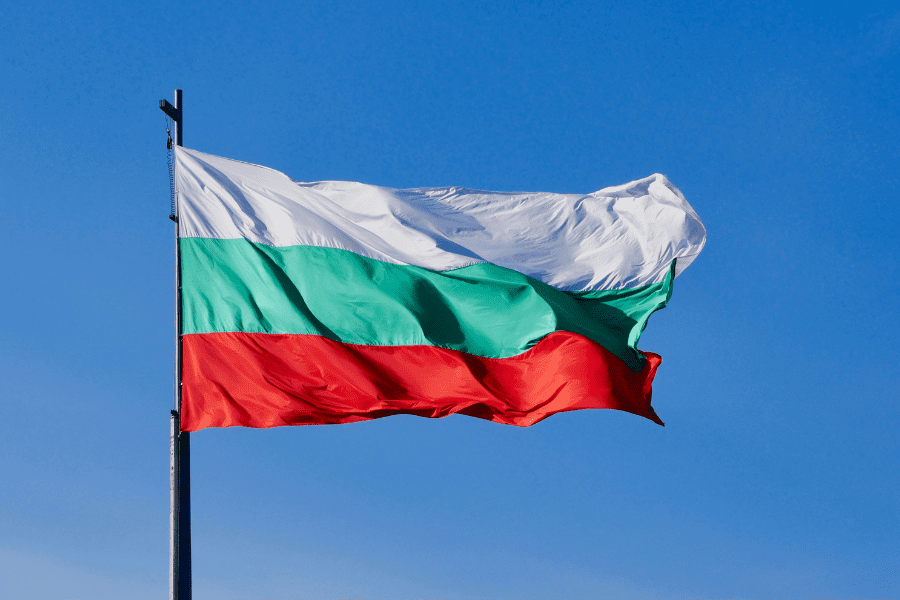
Bulgarian Citizenship
While fast-track citizenship by investment in Bulgaria is no longer on the cards, you can join the ranks of Bulgarian nationals by obtaining permanent residency in the country.
Spend five years on an extended residence permit to acquire a Bulgarian permanent residence permit. Stay in Bulgaria for a further five years on this Bulgarian ID card, and you can claim Bulgarian citizenship.
The Bulgarian Citizenship Act grants non-EU nationals this privilege. For foreign investors, be prepared to pay the waiting game, becoming a permanent resident is a step on the ladder that can result in you becoming a Bulgarian citizen.
But we want you to stay focused on what you want to achieve with Bulgaria’s permanent residence. The European Union admitted Croatia to the Schengen area countries rather than Bulgaria and Romania.
This means a Bulgarian passport , which is ranked 33T on the Nomad Passport Index Ranking, is less valuable than a Croatian one. However, Bulgaria is now in the process of joining the Schengen Area and already applying the Schengen European Union law to a large extent.

Bulgarian Residency Requirements
The Ministry of Foreign Affairs offers three visas to foreign nationals to enable them to stay in Bulgaria. The A Visa allows for the briefest of visits to Bulgaria, as it is an airport visa permitting you to pass through the country on your way to your eventual destination.
The C Visa covers those intending to visit Bulgaria for a short stay. However, the one that will interest you most though is the D Visa. This will allow you to enjoy a long-term stay in the country.
Extended Residence in Bulgaria
This Bulgarian temporary residence permit is also known as a prolonged residence permit. It is valid for one year. All non-EU foreign citizens must hold a D Visa before applying for this temporary residence permit.
You must attach the following D Visa application documents:
- photocopy of the first page of your valid passport
- photocopy of the latest Bulgarian and Schengen visas or UK and US visas, if any
- color photograph 3.5 cm x 4.5 cm on a light background
- medical insurance policy valid for EU member states for the entire duration of the trip, covering all repatriation costs and for emergency medical care and emergency hospital treatment for the period of stay specified in the visa for a minimum amount of €30,000
- transport tickets (original and copy) or confirmation of booking tickets or funds
- copy of the technical passport of the vehicle being traveled with
The D Visa application processing embassy fee is waived for:
- foreign citizens who are under the age of six when applying for a visa
- family members of Bulgarian citizens and EU citizens.
Extended residence is available if you are a foreign national who has made a successful Type D Visa application. Family members will need to hold a D Visa too.
More than Visa D alone is needed to secure temporary residence for up to one year. After you obtain Visa D at your nearest Bulgarian embassy or general consulate, you will also need to commit to doing one of the following:
- open a trade representative office and promote your foreign business in Bulgaria
- start a company and create ten jobs for Bulgarian citizens
- invest in real estate via a Bulgaria company of a minimum €312,000
These residence permits for you and your family require a minimum of 183 days stay in the country. After this period, you are considered a tax resident in Bulgaria.
Bulgarian Permanent Residence
Prolonged residence can be renewed four times, and after five years of living in the country on a temporary residence basis, you can obtain Bulgarian permanent residency. However, there are shortcuts to permanent residence for you, the foreign national, which requires no physical residence requirements in the country.
You can take routes to Bulgarian permanent residence without undergoing extended residence.
Bypass Bulgarian temporary residence via your nearest Bulgarian embassy or general consulate by fulfilling one of the following requirements:
- form a company and invest no less than 500,000 Bulgarian Lev (approximately €256,000) in long-term assets and create ten positions for Bulgarian citizens
- invest a minimum amount of 6,000,000 Bulgarian Leva (about €3,068,000) in the capital of a Bulgarian company whose shares are not traded on a regulated market
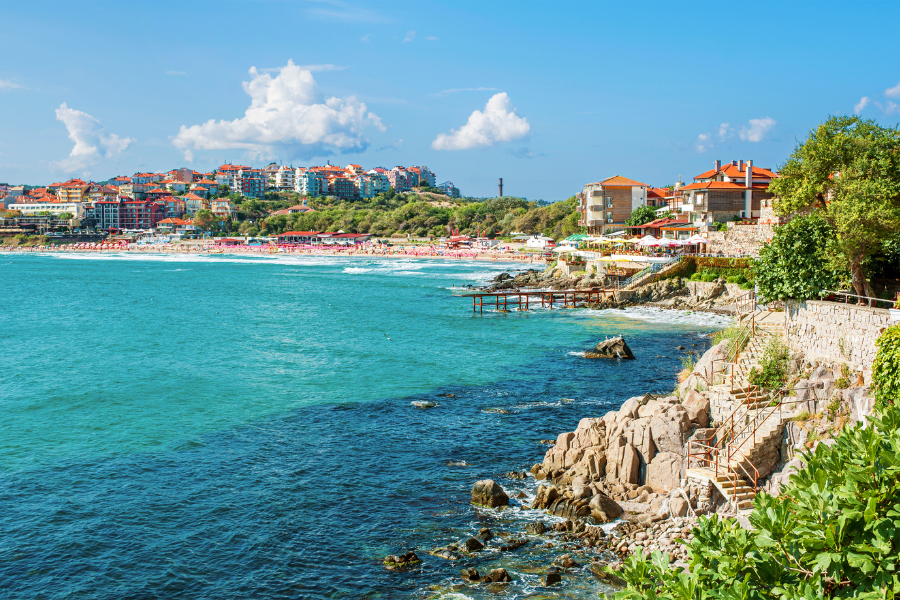
Bulgarian Residency Conclusion
The maximum period you can stay as a tourist in Bulgaria depends on which country you come from, but typically is 90 days. Bulgarian law then stipulates you apply for temporary or permanent residency to remain in Bulgaria.
A temporary Bulgarian ID card could be yours if you:
- establish a trade representative office
- set up Bulgarian companies that create ten positions for local citizens
- invest a minimum €312,000 in real estate via a company of Bulgarian origin
If permanent residence is your immediate aim, you don’t have to worry about setting up a trade representative office. Cut to the chase instead by:
- starting a company and investing no less than 500,000 Bulgarian Leva (approximately €256,000) in long-term assets and creating ten positions for local citizens
- investing a minimum amount of 6,000,000 Bulgarian Leva (about €3,068,000) in the capital of a Bulgarian business whose shares are not traded on a regulated market
A Bulgarian ID card that proves you have permanent residence in the country is a useful Plan B.
You are allowed multiple entries to Bulgaria and can move your family to the country.
Would you like to diversify? Would you like to open an office in non-EU or EU countries? This is where Nomad Capitalist can help you with all your representative office, and permanent residence needs in an EU country and beyond. We can help you solve your offshore puzzle and go where you’re treated best.

Bulgarian Residency FAQ
If you are an EU citizen, then yes, you can. But others who plan to relocate to Bulgaria must complete various formalities depending on their nationalities. Non-EU citizens, for instance, need to apply for short-term visas for a visit and long-term residence permits for a longer stay and permanent residence.
To qualify for Bulgarian tax residency, you must stay for 183 days in Bulgaria. However, according to Bulgarian law, you can also obtain tax residency in Bulgaria if you can prove that the center of your vital interests is in the country.
American citizens require visas if they want to travel to Bulgaria, move to the country for a short period, or establish permanent residency in Bulgaria.
Yes. Every foreign national who purchases real estate in Bulgaria at a minimum €312,000 may secure an extended residence permit. That’s one way to obtain a Bulgarian ID card. Getting a second passport is the perfect Plan B allowing you to choose the level of taxes you pay. Nomad Capitalist is ready to help you prepare and create a holistic Action Plan .
GET ACTIONABLE TIPS FOR REDUCING TAXES AND BUILDING FREEDOM OVERSEAS
Sign up for our Weekly Rundown packed with hand-picked insights on global citizenship, offshore tax planning, and new places to diversify.
Are you a US citizen?
YOU MAY ALSO LIKE

What is Panama’s Qualified Investor ‘Red Carpet’ Visa?
If you imagine Panama is full of dirt roads, rural squalor and economic disadvantage, think again....

How to Get Serbian Citizenship by Exception
What do Johnny Depp, Steven Seagal, and Ralph Fiennes have in common? Well, apart from the...

How Does Italy’s ‘La Dolce Visa’, Work?
How do you even begin to explain the charm of Italy for expats? Italy's attractions include...

Malta’s Permanent Residence Program: The Ultimate Guide
Arriving in Malta at the break of dawn, the first glimpse of the island emerges from the quiet...
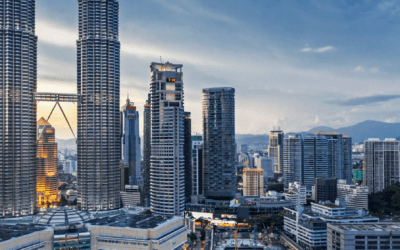
How to Pay Zero or Low Taxes in Malaysia (Territorial Tax)
Malaysia is beautiful, but don't just take our word for it. It's been officially recognised as the...

How to Pay Zero or Low Taxes in Costa Rica (Territorial Tax)
Costa Rica offers a stable political climate, a strong expat community, and good infrastructure....
Get the Right Passport for You
We’ve helped our clients obtain 28 different country’s citizenships, from often-overlooked ancestry programs, to fast-tracked investment options, and even exclusive programs for HNWIs. Don’t limit yourself; let Nomad Capitalist’s unbiased approach help you find the best option.
What do you want to accomplish?
Let us know your goal and we will tell you how we can help you based on your details.
REDUCE TAXES OFFSHORE
CREATE A GLOBAL PLAN B
DIVERSIFY AND PROTECT WEALTH

UNITED STATES

UNITED KINGDOM

EU COUNTRIES

Tax Amount ($US Dollars)
POLITICAL INSTABILITY
ECONOMIC INSTABILITY
MISSED OPPORTUNITIES
TRAVEL RESTRICTIONS
HIGH TAX LIABILITIES
RISK MANAGEMENT
MARKET PROTECTION
WEALTH PRESERVATION
OPPORTUNITY CAPITALIZATION
ESTATE PLANNING
Email Address
We handle your data according to our Privacy Policy . By entering your email address you grant us permission to send you the report and follow up emails later.

Bulgarian Long-Term EU Residence Permit
Who is eligible to apply for the long-term bulgarian residence permit.
If you are an EU citizen read ahead as you may be eligible to apply. If not you may find extended residence section more relevant to you.
Is the Long-Term Bulgarian Residence Permit Right for Me?
If you are an EU citizen (or a non-EU Citizen who is a family member of an EU Citizen), holder of a valid passport or an ID card, you have the right to remain in Bulgaria for a continuous period of up to three (3) months after entering the country. You must then apply for a long-term EU residence permit by submitting your documents at Migration Directorate branch of the Ministry of Interior .
The requirements listed below serve as a legal basis for long-term residence application under the Foreigners in the Republic of Bulgaria Act ( FRBA ) and the Rules on Application of Foreigners in the Republic of Bulgaria Act ( RAFRBA ).
- Employment or self-employment
- Self-sustainability
- Study in Bulgaria
- Both EU and non-EU family relationship with EU Citizen
Long-Term EU Residence Permit Documents I Must Provide
There are some documents that your local Migration office requires from every applicant no matter what the grounds for the long-term residence permit application are. Make sure you have all these documents available when submitting your application. The standard documents are as follows:
- A completed long-term residence application form (residence permit applications form are available at your local Migration office)
- A valid European ID document (a government-issued European ID card or passport)
- Previous long-term residence permit if any (only required on renewal)
- Evidence of family member's residency status (only required if applying as a family member of EU citizen)
- Paid application fee
You’ll also need to provide a certified translation of any documents that are not in Bulgarian. Note that this list is not exhaustive and only contains some of the documents required.
Long-Term EU Residence Permit Submission Deadline
Documents for the application must be submitted no later than three (3) months after entering the country. Applications are usually processes within a day.
How Long the Long-Term EU Residence Permit Is Valid For?
The long-term UE residence permit can be valid for up to five (5) years. However, a residence card validity may vary depending on the expiration dates of the documents provided during the application process. If the relevant requirements are met, it can be extended further.
Bulgarian Residence Certificate Application (Optional)
Once you have obtained the long-term UE residence permit, you can apply for a residence certificate. The residence certificate is a plastic card the size of a credit card with a personal identification number. The card can be either issued in 3 or 30 days, depending on the selected service option.
From Long-Term EU Residence to Permanent Residence
If you have legally remained in Bulgaria for consecutive five (5) years on the basis of long-term EU residence, you and your family members are entitled to a permanent residence.
Questions or Comments?
Visa Traveler
Exploring the world one country at a time
53 countries you can travel VISA-FREE with a Schengen visa [2024 edition]
Updated: April 13, 2024 103 Comments
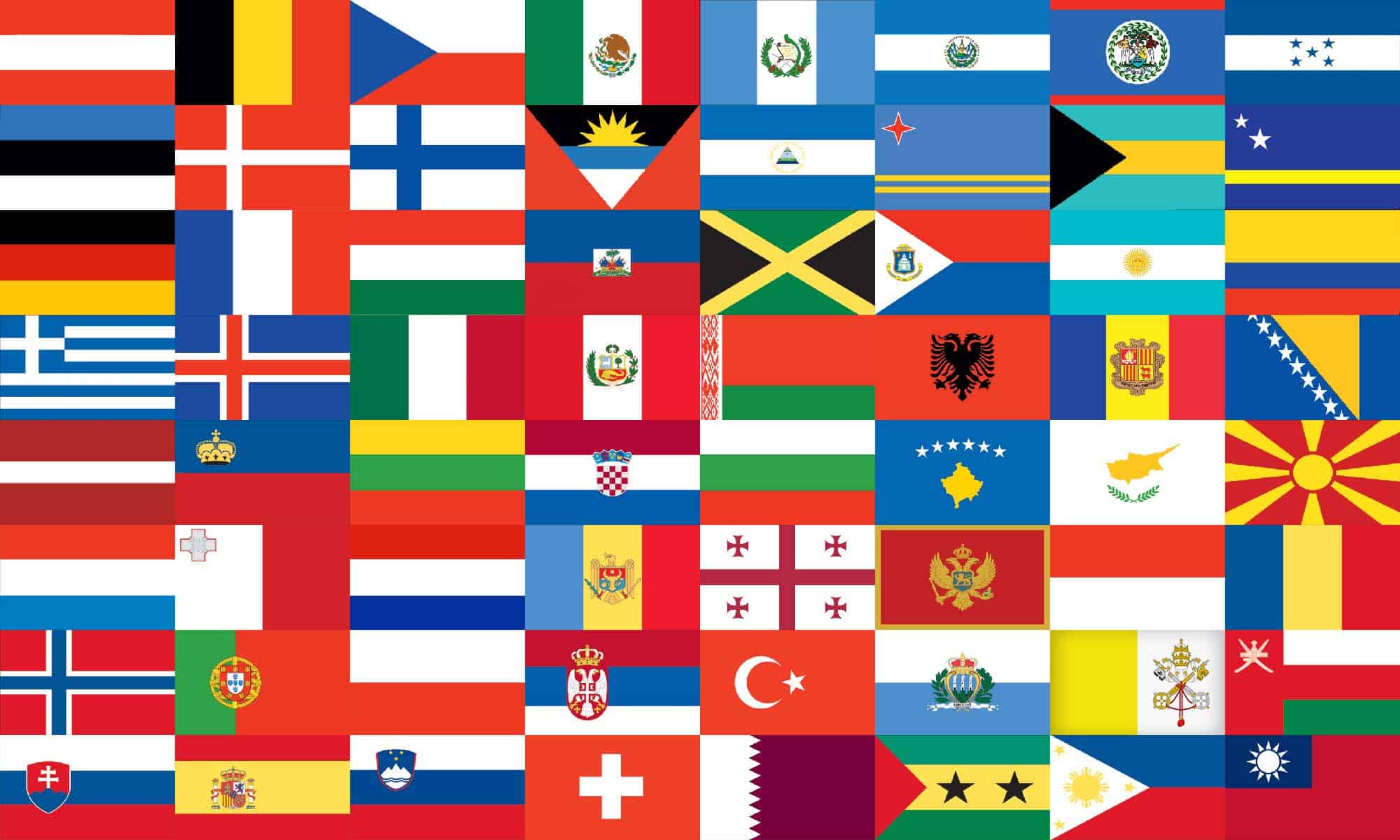
There are 27 countries you can visit with a Schengen visa. But, there are also 53 non-Schengen countries and territories that you can travel VISA-FREE with a Schengen visa.
Most people think that a Schengen visa is only for the Schengen zone. Yes, of course, it is. But many non-Schengen countries also honor Schengen visa as their own visa.
Table of Contents
IMPORTANT DISCLAIMER Visa requirements change constantly but we make every effort to keep the information accurate and up to date. We provide links to official sources wherever necessary, so you can conduct your own due diligence to verify the visa requirements before planning your trip. We shall not be held liable for any damages incurred as a result of using the information in this article. Refer to our full disclaimer for more information.
Why do non-Schengen countries honor Schengen visa?
There are several reasons why non-Schengen countries honor Schengen visas –
Reason 1: Countries soon to be included in the Schengen agreement
Countries that are in the process of joining the Schengen zone have already started honoring Schengen visas. Currently, Bulgaria, Romania and Cyprus are in the process of joining the Schengen zone
Reason 2: Countries trust the Schengen visa screening process
Schengen visa applicants are screened thoroughly for their strong ties with their home countries. Countries simply trust the Schengen visa application screening.
Reason 3: Countries that lack infrastructure, technology or resources
Countries may not have the required infrastructure, technology or resources to screen applicants as thoroughly as a Schengen visa.

BONUS: FREE eBOOK
Enter your name and email to download the FREE eBOOK: The Secret to VISA-FREE Travel
Opt in to receive my monthly visa updates
You can unsubscribe anytime. For more details, review our Privacy Policy.
Your FREE eBook is on it’s way to your inbox! Check your email.
What countries are included in the Schengen visa?
The following 27 countries are included in the Schengen visa.
- Czech Republic
- Liechtenstein
- Netherlands
- Switzerland
Apart from the above 27, there are about 53 non-Schengen countries and territories you can visit with a Schengen visa.
What Schengen visas are eligible for non-Schengen countries?
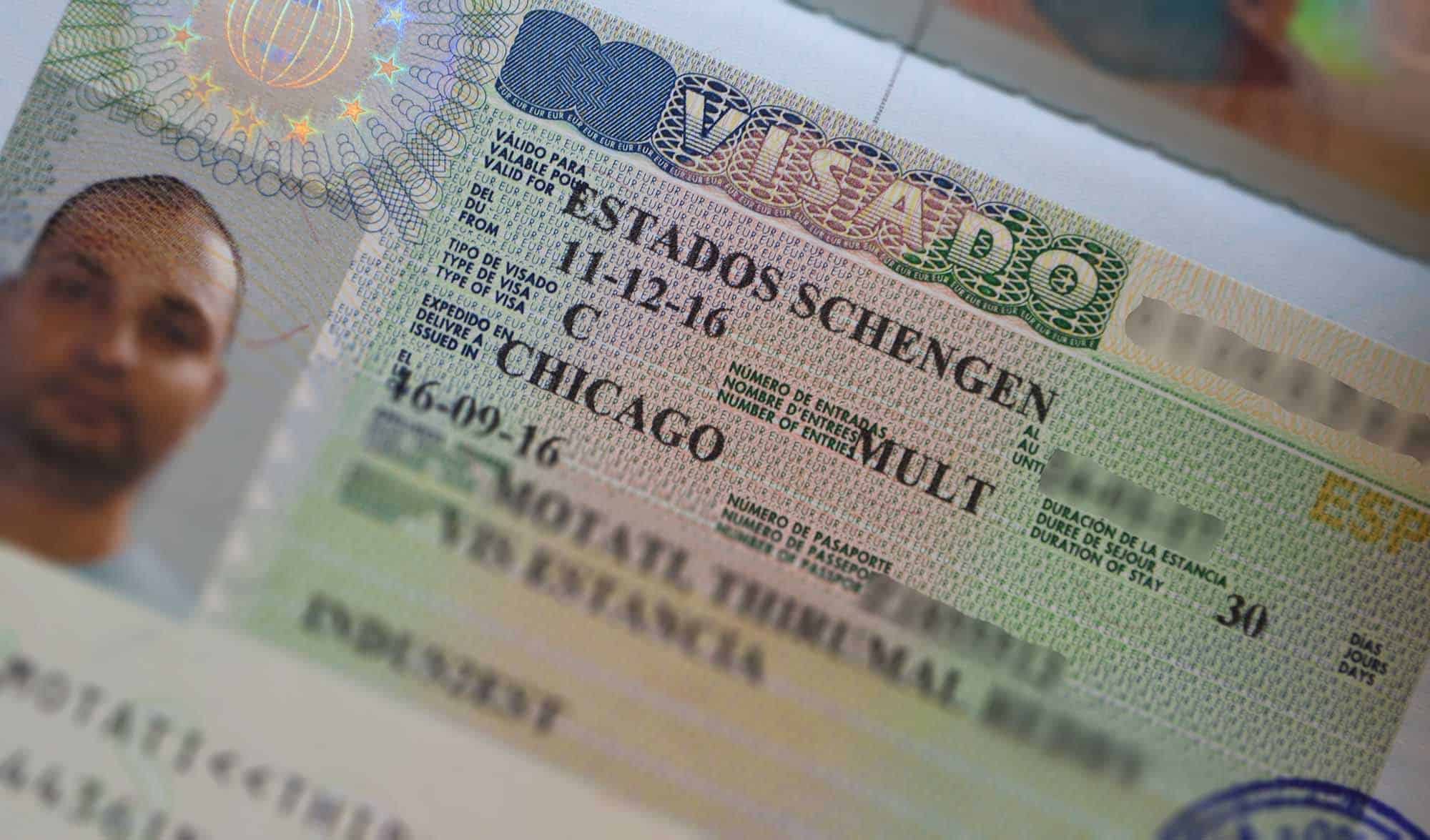
Depending on the country, any of the below Schengen visas can be used.
- Short-term C-Type Schengen visa (tourism/business)
- Long-term D-Type Schengen visa (study/work)
- Transit A-Type Schengen visa (transit)
- Residence permit from any Schengen country
Refer to each country below for permitted Schengen visa types. Some countries require the Schengen visa to be multiple-entry and have been used at least once to travel to the Schengen area.
So, without further ado, let’s get started.
North America

- Eligible nationalities: All nationalities
- Permitted visas: All valid used/unused multiple-entry Schengen visas
- Permitted residence permits: A valid permanent residence permit from any Schengen country
- Entry granted: Up to 180 days
- Entry rule: Schengen visa must be valid for the entire stay in Mexico
- Official source: National Institute of Migration, Mexico
RELATED: 53 countries you can travel VISA-FREE with a US visa in 2024
Central America

- Permitted residence permits: None
- Entry granted: 30 days
- Official source: Belize.com
03. Costa Rica
- Permitted visas: All valid used/unused multiple-entry D-Type Schengen visas (student and work only)
- Schengen C-Type short-stay visas are NOT accepted
- Schengen D-Type visa or residence permit must be valid for at least 3 months from the day of arrival
- Residence permit must be in the form of a “card”, residence permits in the form of visa stickers are not accepted
- Official source: Embassy of Costa Rica in Washington DC, US
04. El Salvador
- Burkina Faso
- Central African Republic
- Côte d’Ivoire
- Equatorial Guinea
- Guinea-Bissau
- Papua New Guinea
- Philippines
- Turkmenistan
- Entry granted: 90 days total in the entire CA-4 zone (Guatemala, Honduras, El Salvador and Nicaragua)
- If entering by air, a fee of 12 USD will be charged for a tourist card
- If you have already entered Guatemala or Honduras, you can enter El Salvador from Guatemala or Honduras by land without any additional visa requirements as per CA-4 Border Control Agreement
- Official source: IATA Travel Centre
05. Guatemala
- Côte d´Ivoire
- Dominican Republic
- If you have already entered Honduras or El Salvador, you can enter Guatemala from Honduras or El Salvador by land without any additional visa requirements as per CA-4 Border Control Agreement.
- Official source: Ministry of Foreign Affairs of Guatemala
06. Honduras
- Cote d’Ivoire
- South Sudan
- Schengen visa must be valid for at least 6 months from the day of arrival
- If you have already entered Guatemala or El Salvador, you can enter Honduras from Guatemala or El Salvador by land without any additional visa requirements as per CA-4 Border Control Agreement.
07. Nicaragua
- Afghanistan
- Bosnia and Herzegovina
- Congo, Dem Rep of
- Congo, Rep of
- Sierra Leone
- Timor-Leste
- Visa is NOT EXEMPT, but are eligible to obtain Visa ON ARRIVAL
- VOA fee is 50 USD, payable in USD, valid for 30 days, single-entry only
- Besides the VOA fee, there is a 10 USD entry fee, a 2 USD land border migration fee (for land border only) and 1 USD municipality tax (for land border only) (payable in USD only)
- Permitted visas: All valid USED multiple-entry Schengen visas, except those issued by non-EU countries (Iceland, Norway, Switzerland, Liechtenstein)
- Permitted residence permits: A valid residence permit from any Schengen country, except issued by non-EU countries (Iceland, Norway, Switzerland, Liechtenstein)
- Schengen visa must have been used at least once to enter the visa-issuing country
- Must show proof of economic solvency for a minimum of 500 USD
- Official source: Embassy of Panama in the USA
RELATED: 38 countries you can travel VISA-FREE with Canada visa in 2024

09. Antigua and Barbuda
- Permitted residence permits: A valid residence permit from any Schengen country
- VOA fee is 100 USD, valid for 30 days, single-entry only
- Official source: Department of Immigration, Antigua and Barbuda
- Official source: Netherlands Worldwide
11. Bahamas
- Entry granted: 90 days
- Official source: Ministry of Foreign Affairs of the Bahamas
12. Bonaire (Dutch Territory)
- Permitted visas: All valid used/unused multiple-entry Schengen visas (C-Type and D-Type only)
13. Curaçao
14. dominican republic.
- Permitted visas: All valid used/unused multiple-entry Schengen visas, except transit (A-Type)
- Entry rule: If arriving by land or sea, must pay a departure tax of 20 USD before departing. If arriving by air, the departure tax is included in the airfare.
- Official source: Ministry of Tourism of Dominican Republic
- Entry rule: A tourist fee of 10 USD must be paid on arrival at the airport
16. Jamaica
- Permitted visas: All valid used/unused single/multiple-entry Schengen visas
- Official source: Immigration Department of Jamaica
17. Sint Maarten
- Permitted visas: All valid used/unused multiple-entry Schengen visas (C-Type or D-Type only)
RELATED: 43 countries you can travel VISA-FREE with UK visa in 2024
South America

18. Colombia
- Permitted visas: All valid used/unused single/multiple-entry Schengen visas, except transit (A-Type)
- Entry rule: Schengen visa must be valid for at least 180 days from the day of arrival
- Official source: Ministry of Foreign Affairs of Colombia
- Entry granted: 180 days
- Entry rule: Schengen visa must be valid for at least 6 months from the day of arrival
- Official source: Ministry of Foreign Affairs of Peru
RELATED: 18 countries you can visit VISA-FREE with an Australian visa or PR in 2024

20. Albania
- Permitted visas: All valid used multiple-entry Schengen visas
- Entry rule: Schengen visa must have been used to enter the visa-issuing country
- Official source: Ministry of Foreign Affairs of Albania
21. Andorra
- Permitted visas: All valid USED double/multiple-entry Schengen visas (C-Type or D-Type only)
- Andorra doesn’t require any visa, but entry/exit to Andorra is only through Spain or France which requires a Schengen visa
- Schengen visa must be multiple-entry or at least double-entry as the entry/exit to Andorra is only through the Schengen zone
- Official source: Ministry of Foreign Affairs of Andorra
22. Armenia
- Marshall Islands
- Saint Kitts and Nevis
- Saint Lucia
- Saudi Arabia
- Solomon Islands
- Trinidad and Tobago
- Entry granted: 21 or 120 days
- VOA fee is 3,000 AMD, valid for 21 days, single-entry (OR) 15,000 AMD, valid for 120 days, single-entry
- Official source: Ministry of Foreign Affairs of Armenia
23. Belarus
- South Africa
- Permitted visas: All valid used multiple-entry Schengen visas (C-Type or D-Type only)
- Schengen visa must have been used to enter the visa-issuing country
- Must arrive and depart from the following airports only – Minsk National Airport, Airport Brest, Airport Gomel, Airport Grodno, Airport Mogilev and Airport Vitebsk.
- Official source: Ministry of Foreign Affairs of the Republic of Belarus
24. Bosnia and Herzegovina
- Eligible nationalities: All nationalities, except Kosovo
- Entry rule: Schengen visa must be valid for at least 30 days from the day of arrival
- Official source: Ministry of Foreign Affairs of Bosnia and Herzegovina
25. Bulgaria
- Permitted visas: All valid used multiple-entry Schengen visas, except transit (A-type)
- Entry rule: Total duration of consecutive stays must not exceed 90 days in any 180-day period
- Official source: Ministry of Foreign Affairs of Bulgaria
- Eligible nationalities: All nationalities, except Azerbaijan and Turkey
- Permitted visas: All valid used/unused double/multiple-entry Schengen visas (C-Type and D-Type only)
- Official source: Ministry of Foreign Affairs of Cyprus
27. Georgia
- Schengen visa must be valid on the day of arrival in Georgia
- Total duration of consecutive stays must not exceed 90 days in any 180-day period
- Official source: Ministry of Foreign Affairs of Georgia
28. Gibraltar (British Territory)
- Permitted visas: All valid USED multiple-entry Schengen visas
- Entry granted: 21 days
- Entry rule: Schengen visa must be valid for at least 7 days beyond the period of stay
- Official source: Gibraltar Borders & Coastguards Agency
- Permitted residence permits: A valid biometric residence permit from any Schengen country
- Entry granted: 15 days
- Entry rule: The residence permit from Schengen must be biometric
- Official source: Ministry of Foreign Affairs of Kosovo
30. Moldova
- São Tomé and Príncipe
- Entry rule: Schengen Visa or residence permit must be valid for the intended period of stay
- Official source: Ministry of Foreign Affairs of the Republic of Moldova
- Permitted visas: All valid USED double/multiple-entry Schengen visas
- Monaco doesn’t require any visa, but entry/exit to Monaco is only through France which requires a Schengen visa
- Schengen visa must be multiple-entry or at least double-entry as the entry/exit to Monaco is only through the Schengen zone
- Official source: Government of Principality of Monaco
32. Montenegro
- Entry rules: Schengen visa must be valid for the intended period of the stay
- Official source: Government of Montenegro
33. North Macedonia
- Permitted visas: All valid used/unused multiple-entry Schengen visas (C-Type only)
- Permitted residence permits: A valid temporary/permanent residence permit from any Schengen country
- Schengen visa must be valid for at least 5 days beyond the intended period of stay
- Total duration of consecutive stays must not exceed 3 months in any 6 months period
- Official source: Ministry of Foreign Affairs of Macedonia
34. Romania
- Permitted visas: All valid used double/multiple-entry Schengen visas (C-Type or LTV)
- The Schengen visa entries or length of stay must not have been exhausted
- The residence permit should have been granted for 5 or more years
- Official source: Ministry of Foreign Affairs of Romania
35. San Marino
- Permitted visas: All valid USED double/multiple-entry Schengen visas (C-Type or D-Type)
- Entry rule: San Marino has no border controls, but entry/exit to San Marino is only through Italy which requires a Schengen visa
- Official source: Ministry of Foreign Affairs of San Marino
- Schengen visa must be valid for the entire duration of the stay
- Official source: Ministry of Foreign Affairs of Serbia
- Algeria (those aged 15-18 and 35-65)
- North Korea
- Visa is NOT EXEMPT, but are eligible to apply for Turkey e-Visa online
- E-Visa fee is 43 USD, validity is 180 days, and single-entry only
- Official source: Ministry of Foreign Affairs of Turkey
If you hold a Schengen visa, follow this step-by-step guide to apply for Tukey e-Visa . This article will guide you to fill out your e-Visa application, pay the fee and download the approved e-Visa.
38. United Kingdom
- Permitted visas: All valid used/unused multiple-entry Schengen D-Type visas only (Short stay C-Type visas are not eligible)
- Entry granted: 24 hours only (Transit Without Visa)
- Visa is NOT EXEMPT, but are eligible to request a 24-hour entry at London (LHR) or Manchester (MAN) airports
- Must be traveling to or from the visa-issuing Schengen country only
- Must arrive and depart by air only
- Must hold the boarding pass for the onward flight
- Onward flight must be within 24 hours (on the same day or the next day before midnight)
- Granting the 24-hour entry is at the sole discretion of the immigration officer
39. Vatican City
- Entry granted: 1 day (there are no accommodation facilities for tourists in Vatican City)
- Entry rule: Vatican City doesn’t require any visa, but entry/exit to Vatican City is only through Italy which requires a Schengen Visa
RELATED: 13 VISA-FREE Countries You Can Visit with New Zealand Visa or PR in 2024
Middle East
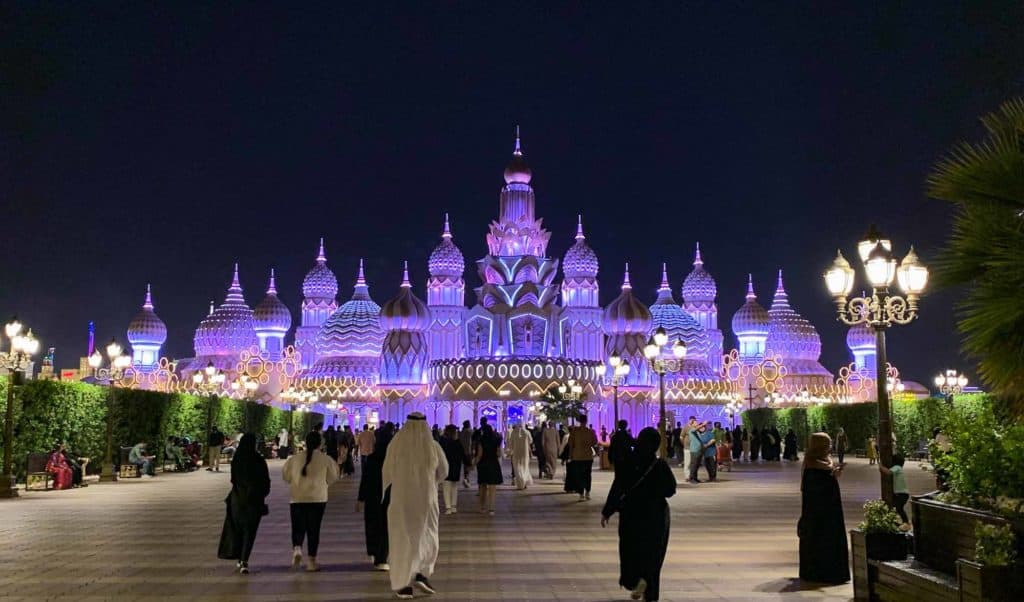
40. Bahrain
- Entry granted: 14 days or 30 days
- Visa is NOT EXEMPT, but are eligible to obtain Visa ON ARRIVAL or Bahrain eVisa
- Single-entry VOA fee is 5 BD, valid for 14 days, entry up to 14 days
- Multiple-entry VOA fee is 12 BD, valid for 3 months, entry up to 1 month
- Single-entry eVisa fee is 9 BD, valid for 14 days, entry up to 14 days
- Multiple-entry eVisa fee is 16 BD, valid for 1 month, entry up to 14 days
- For VOA, the Schengen visa must be valid for the entire stay in Bahrain
- For eVisa, the Schengen visa must be valid for at least 6 months from the day of arrival
- Official source: Bahrain eVisa Portal
- Congo, Dem. Rep. Of
- Congo, Rep. of
- Guinea Bissau
- Permitted residence permits: A valid residence permit from any Schengen country, except Iceland, Norway, Switzerland and Liechtenstein.
- Visa is NOT EXEMPT, but are eligible to apply for Jordan e-Visa
- The residence permit must be valid for at least 6 months from the day of arrival
- Official source: Jordan E-Visa Portal
- El Salvador
- Entry granted: 10 or 30 days
- Visa is NOT EXEMPT, but are eligible to obtain Oman 26M or 26N Tourist Visa online
- 26M eVIsa fee is 20 OMR, valid for 30 days, single-entry only
- 26N eVIsa fee is 5 OMR, valid for 10 days, single-entry only
- Official source: Sultanate of Oman, Royal Oman Police
- Visa is NOT EXEMPT, but are eligible to apply for A3 Visa online on the Hayya portal
- A3 Visa fee is QAR 100, valid for 30 days, single-entry only
- Must provide hotel booking for the entire stay reserved through the Discover Qatar website
- Schengen visa or residence permit must be valid on the day of the A3 Visa application
- Official source: Qatar Tourist Board
44. Saudi Arabia
- Permitted visas: All valid used multiple-entry Schengen visas (C-Type and D-Type only)
- Permitted residence permits: A valid residence permit from any Schengen country, except Iceland, Norway, Switzerland and Liechtenstein
- Visa is NOT EXEMPT, but are eligible to obtain Visa ON ARRIVAL or Saudi Arabia eVisa
- VOA or eVisa fee is 300 SAR, valid for 1 year, multiple-entry (plus service fee and insurance fee)
- Schengen visa must have been USED to enter the visa-issuing country
- Official source: Saudi Arabia Tourism Authority
45. United Arab Emirates
- Eligible nationalities: Indian passport holders only
- Permitted visas: None
- Entry granted: 14 days
- Visa is NOT EXEMPT, but are eligible to obtain Visa ON ARRIVAL at UAE airports
- VOA fee is 100 AED, valid for 14 days, single-entry only
- Schengen residence permit must be valid for at least 6 months from the day of arrival
- Official source: UAE Government Portal
RELATED: 5 ways to get proof of onward travel for your next trip

- Visa is NOT EXEMPT, but are eligible to obtain Visa ON ARRIVAL at all international airports
- VOA fee is 25 USD, valid for 30 days, single-entry only
- Official source: Egypt Tourism Department
47. Morocco
- Visa is NOT EXEMPT, but are eligible to apply for Morocco e-Visa
- E-Visa fee is 770 MAD, valid for 180 days, single-entry only
- Schengen visa must be valid for at least 90 days from the day of arrival
- Official source: Morocco E-Visa Portal
RELATED: How to turn your weak passport into a strong passport (with examples)

48. Kyrgyzstan
- Permitted visas: All valid used/unused LONG-TERM multiple-entry Schengen visas issued for at least 3+ years
- Entry granted: 7 days
- Schengen visa must be a long-term visa issued for 3 or more years. Schengen visas issued for less than 3 years are not accepted.
- After entering Kyrgyzstan this way, you can only reenter Kyrgyzstan again after 21 days.
- Official source: Ministry of Foreign Affairs of Kyrgyzstan
49. Philippines
- Passport must be valid for at least 6 months beyond the date of departure
- Official source: Embassy of the Philippines in India
50. Singapore
- Permitted visas: All valid used/unused single/multiple-entry Schengen visas that allow entry into Germany and Switzerland, except transit (A-Type)
- Permitted residence permits: A valid residence permit from Germany or Switzerland
- Entry granted: 96 hours (4 days)
- Visa is NOT EXEMPT but are eligible to obtain Visa Free Transit Facility (VFTF) upon arrival
- Must be traveling to or from the country of passport. Example: Must be traveling to a third country from India via Singapore or traveling to India from a third country via Singapore. An example itinerary would be India-Singapore-Bali or Bali-Singapore-India.
- Both arriving and departing flights in Singapore must be on the same itinerary
- The visa or residence permit must be valid for at least 1 month at the time of arrival
- Official source: Singapore Immigration & Checkpoints Authority
51. South Korea
- Eligible nationalities: All nationalities (except the following 23 nationalities – Afghanistan, Bangladesh, Cameron, Cuba, Egypt, Gambia, Ghana, Iran, Iraq, Kosovo, Kyrgyzstan, Myanmar, Nepal, Nigeria, Pakistan, Palestine, Senegal, Somalia, Sri Lanka, Sudan, Syria, Uzbekistan and Yemen)
- Entry rule: Must be traveling to/from the visa-issuing country through South Korea
- Official source: South Korea Embassy in Washington DC, USA
- Permitted visas: All valid/expired used/unused single/multiple-entry Schengen visas, except transit (A-Type)
- Permitted residence permits: A valid/expired residence permit from any Schengen country
- Visa is EXEMPT but must apply for ROC Travel Authorization Certificate online before arrival
- ROC Travel Authorization Certificate is free of charge, valid for 90 days, multiple-entry
- If using an EXPIRED Schengen visa or residence permit, the visa or residence permit must have expired in the last 10 years only
- Official source: Bureau of Consular Affairs, Republic of China (Taiwan)
53. Thailand
- Permitted visas: A RESIDENCE visa from any Schengen country, such as student, work, etc.
- Permitted residence permits: A valid residence permit from any Schengen countries
- Entry granted: 60 days
- Visa is NOT EXEMPT, but are eligible to apply for Thailand e-Visa online
- E-Visa fee is 40 USD, valid for 90 days or 180 days, single or multiple-entry
- Must submit proof of residence in the country of application such as driver’s license, utility bill, etc.
- Official source: Thai E-Visa Portal
RELATED: How to book flight tickets with 24 hour FREE cancellation on Expedia – A step-by-step guide
There you have it! 53 non-Schengen countries and territories you can travel VISA-FREE with a Schengen visa. Including the 27 Schengen countries, you can visit 80 countries and territories with a Schengen visa.
Do you know any other country (I haven’t listed here) where you can travel VISA-FREE with a Schengen visa? Let me know in the comments below.
Change history: For those who are interested, here are the changes to this list.
WRITTEN BY THIRUMAL MOTATI

Thirumal Motati is an expert in tourist visa matters. He has been traveling the world on tourist visas for more than a decade. With his expertise, he has obtained several tourist visas, including the most strenuous ones such as the US, UK, Canada, and Schengen, some of which were granted multiple times. He has also set foot inside US consulates on numerous occasions. Mr. Motati has uncovered the secrets to successful visa applications. His guidance has enabled countless individuals to obtain their visas and fulfill their travel dreams. His statements have been mentioned in publications like Yahoo, BBC, The Hindu, and Travel Zoo.
PLAN YOUR TRAVEL WITH VISA TRAVELER
I highly recommend using these websites to plan your trip. I use these websites myself to apply for my visas, book my flights and hotels and purchase my travel insurance.
01. Apply for your visa
Get a verifiable flight itinerary for your visa application from DummyTicket247 . DummyTicket247 is a flight search engine to search and book flight itineraries for visas instantly. These flight itineraries are guaranteed to be valid for 2 weeks and work for all visa applications.
02. Book your fight
Find the cheapest flight tickets using Skyscanner . Skyscanner includes all budget airlines and you are guaranteed to find the cheapest flight to your destination.
03. Book your hotel
Book your hotel from Booking.com . Booking.com has pretty much every hotel, hostel and guesthouse from every destination.
04. Get your onward ticket
If traveling on a one-way ticket, use BestOnwardTicket to get proof of onward ticket for just $12, valid for 48 hours.
05. Purchase your insurance
Purchase travel medical insurance for your trip from SafetyWing . Insurance from SafetyWing covers COVID-19 and also comes with a visa letter which you can use for your visas.
Need more? Check out my travel resources page for the best websites to plan your trip.
LEGAL DISCLAIMER We are not affiliated with immigration, embassies or governments of any country. The content in this article is for educational and general informational purposes only, and shall not be understood or construed as, visa, immigration or legal advice. Your use of information provided in this article is solely at your own risk and you expressly agree not to rely upon any information contained in this article as a substitute for professional visa or immigration advice. Under no circumstance shall be held liable or responsible for any errors or omissions in this article or for any damage you may suffer in respect to any actions taken or not taken based on any or all of the information in this article. Please refer to our full disclaimer for further information.
AFFILIATE DISCLOSURE This post may contain affiliate links, which means we may receive a commission, at no extra cost to you, if you make a purchase through a link. Please refer to our full disclosure for further information.
RELATED POSTS
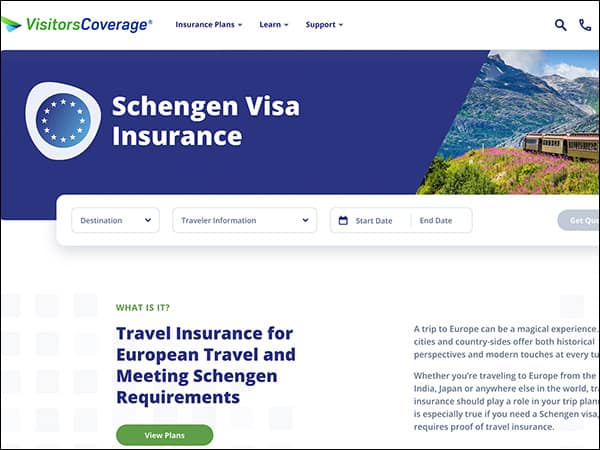
Loading 103 Comments... Please Wait.
- Cookie Policy
- Copyright Notice
- Privacy Policy
- Terms of Use
- Flight Itinerary
- Hotel Reservation
- Travel Insurance
- Onward Ticket
- Testimonials
Search this site
Wonach suchen Sie?
Willkommen auf den seiten des auswärtigen amts, schengen visa for third-country nationals living in bulgaria.
Schengen Visum, © colourbox
Für kurzfristigen Aufenthalt bis maximal 90 Tage
General information
What changes on the 31.03.2024.
- Preparing the application
Appointment for application
Process of the visa application, passport pick-up, enjoy your trip some information for visa holders, weitere informationen.
Generally speaking, all foreigners who are not EU nationals require a visa for stays in Germany. A visa is not required for visits of up to 90 days in an 180‑day period for nationals of those countries for which the European Community has abolished the visa requirement.
You will find an overview on visa requirements here:
Table of countries whose citizens require/do not require visas to enter Germany
The visa has to be applied for at the mission of the Schengen state in whose territory the sole or main destination is situated.
Note: There is no automatic entitlement to a Schengen Visa
The mission must ensure that the following requirements have been met in each individual case:
- The purpose of the trip to Germany must be plausible and comprehensible
- The applicant must be in a position to finance his/her living and travel costs
- The visa holder must be prepared to leave the Schengen area before the visa expires
- Documentary evidence must be provided of travel health insurance with a minimum coverage of 30.000 Euros, valid for the entire Schengen area and the entire length of stay
Foreign nationals with a permanent residence in Bulgaria and the appropriate residence permit (so-called "third-country nationals") applying for a visa to travel to or through Germany have to present the documents mentioned below, depending on their purpose of travel.
All applicants must provide the originals as well as a clear photocopy of all documents . Please be advised that additional documentation may be required in individual cases.
From 31 March 2024, checks on persons at internal air and sea borders with and between Bulgaria and Romania shall be lifted.
Holders of valid Bulgarian residence permits and national visas for long-term residence can then, in accordance with Article 21 of the Convention implementing the Schengen Agreement, travel freely in the territory of the other Schengen countries for up to 90 days per period of 180 days on the basis of these documents and a valid and recognized travel document, provided they meet the entry requirements in accordance with Article 6 of the Schengen Borders Code . It is irrelevant whether you stay in the other states of the Schengen area for 90 days or whether you enter and leave several times.
National short-stay visas issued by Bulgaria and Romania before 31 March 2024 shall remain valid during their period of validity. They allow free travel in Bulgaria, Romania and Cyprus only. For a stay in Germany these visa holders still need a Schengen visa.
From 01. April 2024 on, Bulgaria will also issue Schengen visas.
We ask you to cancel any appointment you have already booked to apply for a Schengen visa valid from April 1, 2024, which will no longer be necessary due to these regulations.
Preparing the application
Please prepare your application as follows::
- Visa application form Please fill in the online visa application form in German or English and in Latin letters, print it out and sign it. Please ensure that the barcode is printed in high quality. Alternatively, you can print out the application form below and fill it out by hand. Any false statements can lead to the application being rejected or to the annulment of a visa already granted. Visa application forms can be obtained from the relevant mission free of charge. They can also be downloaded here .
- Necessary documents Please collect all necessary documents. Uncomplete documentation can be a reason for the application to be rejected. Please find below a checklist for each type of visa.
Business visa
- Passport Your passport must have at least 2 blank pages, have been issued within the previous 10 years and the validity has to extend the duration of the visa you are applying for by at least 3 months
- Residence Permit A valid Bulgarian residence permit (lichna karta or long-term visa)
- Application Form 1 fully completed visa application form for a Schengen Visa (in German or English)
- Passport Photos 2 recent passport sized photographs with biometric criteria: 3,5 cm x 4,5 cm, good contrast, light background (single-colored white or light grey), height of the face must be 32 mm - 36 mm from chin to hairline (photographs can be purchased e.g. at the photo shop in Elemag Street right behind the Embassy)
- travel health insurance with a minimum coverage of 30.000 Euros, valid for the entire Schengen area and the entire length of stay
- a detailed letter of invitation (original) from your German business partner which clearly states your travel purpose for the entire length of your intended stay
- travel authorisation from your employer for the intended business trip; trade register excerpt of Bulgarian company; alternatively if self-employed: bank account statements for the last three months
Visa to visit Family or Friends :
- Your passport must have at least 2 blank pages, have been issued within the previous 10 years and the validity has to extend the duration of the visa you are applying for by at least 3 months
- formal obligation letter (according to §§ 66 - 68 of the German Law for Foreigners), which can be issued for the host by the German Foreigners' Office
- employees: certificate of employment and certificate of salary
- self-employed: trade register excerpt of Bulgarian company
- students: certificate of enrollment
- retirees: pension certificate
- proof of family relations in Bulgaria e.g. marriage certificate and "lichna karta" of spouse
- if applicable: proof of ownership of real estate in Bulgaria
Tourism Visa
- proof of sufficient financial means for your entire stay (e.g. current bank statements from the previous three months)
- hotel and flight reservations
- certificate of employment and certificate of salary
- if applicable: proof of family relations in Bulgaria e.g. marrage certificate and "lichna karta" of spouse
- if applicable: rental contract or proof of ownership of real estate in Bulgaria
Visa according to the Freedom of Movement Act EU : required documents
- "lichna karta" or passport of the family member with EU -citizenship
- corresponding marriage certificate or birth certificate of child
Airport Transit Visa
- airplane ticket
- valid visa or residence permit for country of Destination
- All visa applicants are required to make an appointment ! Visa appointments for the Embassy in Sofia can only be booked online with the German Foreign Office. To make an appointment online please visit their website: BOOK AN APPOINTMENT Please note that the appointments offered on this system are the earliest and the only appointments available. Due to a high demand there can be a waiting period for appointments. Therefore we are unable to offer you a short term appointment. We ask you to make an appointment as early as possible (and not earlier than three months before your travel date). Before booking an appointment, please read carefully all information. Uncomplete applications must be rejected, and a new appointment is required. It is not possible to book an appointment just for information without application.
As a rule, applicants must submit visa applications, together with all necessary documents, in person at the German mission responsible for their place of residence. In order to avoid time‑consuming requests for additional information or documentation, applicants should consult the website of the respective mission well in advance of their departure date to find out about the visa procedure and about the documentation which has to be submitted.
Please be on time to avoid any delays. You will submit your application, answer questions about your travel plans, leave your finger prints and pay the fee. More information about the fees you can find here .
As a rule, missions require between two and ten working days to decide on an application for a short stay visa. Please understand that during this time no questions about the the process can be answered. Once the decision has been made only the applicant himself or a duely entitled Person can get further Information.
Once the decision has been made you can come and pick up your passport during the opening hours for that purpose.
Should a visa application be rejected, the applicant will be informed of the main reasons for the rejection. Every applicant is entitled to take legal recourse against the mission’s decision.
It is also always possible to submit a new application with complete documents.
Please check upon picking up your passport, if all data on your visa sticker are correct. You will find your complete name, your passport number and your photo. The visa also contains the period of validity (this is the time within you can travel to the Schengen Area) and the maximum number of days of stay.
The Schengen Visa does not automatically entitle to enter the Schengen Space. The decision about your entry is made at the border by the Border Police. Possibly you will be asked to present next to your valid visa more documents proving the purpose and length of your stay as well as how you are going to finance it. You should also always have some proof of health insurance with you.
More Information you can find here ( FAQ )
In case of any comment on the Schengen visa application process itself and/or the staff’s behavior, please contact the head of the visa section here . We will process your enquiry a.s.a.p. Important: You cannot appeal against the rejection, annulment or revocation of your Schengen visa application through this contact form.
Please note:
Although the information on this website has been prepared with utmost care, we cannot accept any responsibility for inaccuracies contained herein.
Application form for Schengen Visa
Visa application forms can be obtained from the mission free of charge. Applicants may also download the forms here. The forms submitted must be original versions in German or English language.
- Application form for Schengen Visa PDF / 277 KB / nicht barrierefrei
Please note that all fees must be paid in Bulgarian Leva (BGN) , in cash or by credit card (visa, mastercard). Fees are to be paid when submitting an application . Further fees will not be charged.
Exemptions may be possible. Please refer to our fees page for information
- Visa fees PDF / 726 KB / barrierefrei
Sample photos for passports and visas
Here you can find information about biometric passport photos which can be purchased e.g. at the foto studio behind the Embassy, ul. Elemag, / ul. Konstantin Kisimov
- Sample photos for passports PDF / 550 KB / nicht barrierefrei
Address, Contact and Hours
Book an Appointment
Book an Appointment IMPORTANT !!! All visa applicants are required to make an appointment! Visa appointments for the Embassy in Sofia can only be booked online with the German Foreign Office.…
- Seite drucken
Seite teilen

IMAGES
VIDEO
COMMENTS
EU citizens, that are entitled to free movement under international agreements executed with EU are issued, at their explicit request, with residence certificates on card carrier, as follows: Long-term residence Certificate for EU citizens in Bulgaria - issued by the bodies of the Ministry of the Interior, with 5-year validity period;Permanent residence Certificate for EU
Documents required by non-EU nationals to enter or travel within the EU. ... 25 EU countries: Austria, Belgium, Bulgaria, Croatia, Czechia, Denmark, Estonia, Finland, France, Germany, Greece, Hungary, Italy, Latvia ... If you have a valid visa or residence permit issued by one of the Schengen area countries (see above) you may also use it for ...
Passport or other travel document always required. You always need a passport or other travel document for a journey abroad. This is also the case for a journey within the Schengen Area. Your passport or travel document must not have been issued more than 10 years ago. The passport or other travel document must also be valid for at least ...
The long-term EU residence permit has a validity period of five years and can be renewed. The last type of residence permit is permanent and is the main step to obtain Bulgarian citizenship. In order to apply for a permanent residence permit in 2024, a foreign citizen must first obtain a Bulgarian extended residence permit.
You may travel visa-free to some EU countries. Once Bulgaria joins the Schengen agreement, you will be able to travel to all Schengen countries without any formalities; You may move your family to Bulgaria. Q) How long can I stay in Bulgaria with a long-term residence permit? Your Bulgarian residence permit will be valid for 6 or 12 months.
To obtain a permanent residence permit, you need to provide the following documents and complete the following steps: • Permanent Residence Permit. For further information and feedback, please contact your local Migration office or call +359 (2) 982 4808, email: [email protected] Citizens of EU. Regional Directorates of Ministry of Interior.
The borderless Schengen area includes 23 EU countries, excluding Bulgaria, Cyprus, Ireland and Romania. If you wish to travel to one of these four countries for a short stay (less than 90 days), you must get a separate national visa. ... Certain categories of non-EU residence permit holders, and their family members, may be able to move more ...
Similarly, holders of visas and residence permits issued by Romania, Cyprus, and Croatia can enter Bulgaria visa-free and stay up to 90 days. The Ministry of Exterior Works has provided a list of countries whose citizens can stay in Bulgaria for up to 90 days without the need for a visa - see here. Residence permit application for EU citizens
• Non-EU National who is a Family Member of a EU National. Permanent Residence Permit. If you have resided legally in Bulgaria for a period of five years on the basis of a consecutive long-term residence permit, you and your family members are entitled to a permanent residence permit. To obtain a permanent residence permit, you need to ...
An EU residence permit is an official document issued by a member state of the European Union that allows a non-EU national to live and work in any EU country for a specified period of time. The permit is also sometimes referred to as a "residence card" or "EEA residence permit". EU residence permits grant their holders the right to ...
Long-Term EU Residence Permit. EU citizens, holders of a valid passport or an ID card, have the right to remain in Bulgaria for a continuous period of up to three (3) months after entering the country. This type of permit is issued for a maximum period of five (5) years. Permanent Residence Permit. Before applicants are issued a permanent ...
Reporting your presence and registering your residence. Can you be requested to leave or be deported? Permanent residence. Choose a situation. Допомога ЄС Україні. EU assistance to Ukraine. Find out everything you need to know about living in another EU country whether you're employed, a student, a pensioner, or a jobseeker.
Your family members' residence permits will be valid for the duration of your residence permit, but not more than 1 year. Further requirements: The application shall be submitted not later than 14 days before expiry of the permitted term of residence of the third-country national on the territory of the Republic of Bulgaria. Appeals
Bulgarian residence permits are good for travel in the Schengen zone. Probably the best news for the foreigners, residing in Bulgaria is that their residence permits will be good for visa-free travel to all Schengen member states. With a Bulgarian residence permit one can now (from 01.04.2024) visit other Schengen countries for a period of 90 ...
open a trade representative office and promote your foreign business in Bulgaria. start a company and create ten jobs for Bulgarian citizens. invest in real estate via a Bulgaria company of a minimum €312,000. These residence permits for you and your family require a minimum of 183 days stay in the country.
It takes up to 3 working days to obtain a Bulgarian residency card. You will submit your application by 12pm on Day 1, and you will be photographed by 2pm on Day 2. The residency card will be issued on the next day after 1pm. If you cannot stay for more than 2 working days in Bulgaria, you can authorize us to collect your residency card on your ...
If you are an EU citizen (or a non-EU Citizen who is a family member of an EU Citizen), holder of a valid passport or an ID card, you have the right to remain in Bulgaria for a continuous period of up to three (3) months after entering the country. You must then apply for a long-term EU residence permit by submitting your documents at Migration ...
In 2020, the EU agreed to make Gibraltar a part of the Schengen area allowing Spain to issue Schengen visas for Gibraltar. However, this agreement is yet to be finalized. Kosovo. Anyone who holds a valid Schengen visa can enter Kosovo visa-free for 15 days— this includes holders of a valid biometric residence permit from a Schengen country.
Meera holds a valid passport and a residence card as an EU family member issued by Bulgaria. ... Your non-EU family member has a residence permit issued by a non-Schengen country, and is travelling to a non-Schengen country ... (and you live or will travel to an EU country other than the country of your nationality) they will join or accompany ...
But not residence permit for non-EU nationals. So it kind of makes it a bit tricky. I know that residence permit somehow acts as a visa, but on the surface, they're not the same. ... If you have a valid visa or residence permit issued by one of the Schengen area countries you may also use it for travel to Bulgaria, Cyprus and Romania. ...
Currently, Bulgaria, Romania and Cyprus are in the process of joining the Schengen zone. ... All valid USED multiple-entry Schengen visas, except those issued by non-EU countries (Iceland, Norway, Switzerland, Liechtenstein) Permitted residence permits: A valid residence permit from any Schengen country, except issued by non-EU countries ...
National short-stay visas issued by Bulgaria and Romania before 31 March 2024 shall remain valid during their period of validity. They allow free travel in Bulgaria, Romania and Cyprus only. For a stay in Germany these visa holders still need a Schengen visa. From 01.
To get a document certifying your right of permanent residence, you must submit proof that you have been living legally in the country for 5 years. You need to send different supporting documents with your application, depending on your situation (employed, self-employed, jobseeker, pensioner, student). This could include: The authorities must ...